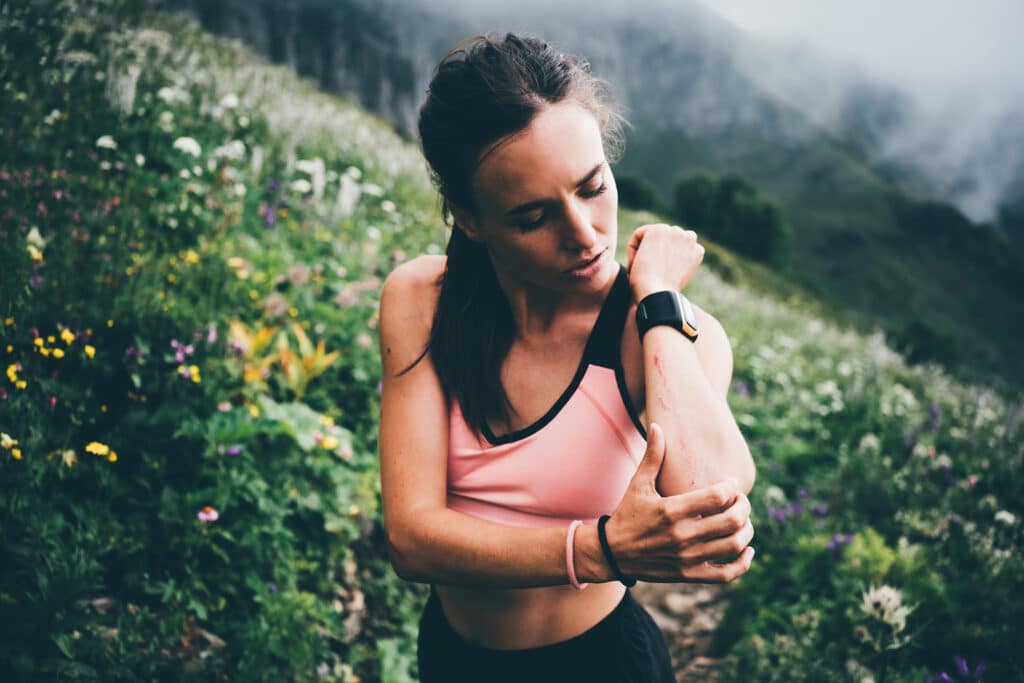Does Itching Spread Poison Ivy Rashes?

Exposing yourself to poison ivy can result in a painful allergic reaction and destruction of the skin, and may sometimes cause severe health problems.
There is a lot of information on the internet about how itching spreads poison ivy rashes. Some say to wash it, some say to let it be, and others say to use different harsh chemicals like bleach. So then, does itching spread poison ivy?
How could such a common thing trigger so much itching? Naturally, you want to rid yourself of that painful rash as soon as possible. If you're scratching and itching like crazy, read more before your arms are covered in blisters and cause more problems.
What causes a poison ivy rash?
A poison ivy rash is the body's reaction to contact with urushiol, the oily toxic substance found in poison ivy, poison oak, and poison sumac. Urushiol can be transferred to anything that touches a contaminated surface or object. In addition, if it was burnt, it can be breathed in and cause shortness of breath.
Urushiol sticks to your skin, hair, and clothing and remains active for one year or longer. You can get a rash from touching leaves, twigs, roots, or anything that has touched these parts of the plant—including clothes and shoes.
The reaction occurs when urushiol comes into contact with your skin. The oil then spreads across the affected area of the skin, and this causes inflammation. A rash will develop within 48 hours of exposure due to an immune response that produces antibodies to fight the toxins.
If you have had contact with poison ivy, you will have a mild form of the rash within 10 minutes. You initially experience an itching sensation before developing a rash within 24 to 48 hours. The itching associated with a poison ivy rash may be intense at first. It will eventually subside as the blisters dry out and peel off your skin within 7-10 days after exposure.
What are some tips to prevent a poison ivy rash from spreading?
The magic rule with getting rid of poison ivy oil is that the sooner you wash, the better! There are things you should do and things you should avoid to help prevent the poison ivy rash from spreading. If the rash remains in the same area, it will be easier to treat. However, it can be problematic if it moves to other body areas.
To stop the spread of a poison ivy rash:
- Remove your clothing and wash it off with Tecnu Original as soon as possible.
- You should also wash your hands well with Tecnu Original or wipe down with Tecnu Detox Wipes immediately after you have touched a plant that is known to be poisonous. Avoid touching your face or rubbing your eyes after coming into contact with poison ivy.
- After washing, pat yourself dry with a towel.
- Wear loose-fitting clothes that allow air circulation around the affected area if possible.
Stop your itching with Teclabs
If you develop a rash from poison ivy, you must avoid scratching it. Scratching can worsen the rash, spreading the oil from the plant into your bloodstream and causing more severe symptoms such as fever and headache.
If you're unlucky enough to get contact with poison ivy, the first thing you'll probably want to do is find a solution. The rash creates an itchy, burning sensation that no one wants to deal with. Prescription medication can help, and is sometimes necessary, but often has unpleasant side effects. Thankfully, there's another option: Tecnu products can stop the itch immediately and relieve pain.
Tecnu treatments work not only on your skin but also on clothing and tools used during your exposure to poison ivy, so you don't have to worry about spreading it through your house or workplace. It is safe for use on children and pets also. So, quit scratching now and visit Teclabs for more details!




